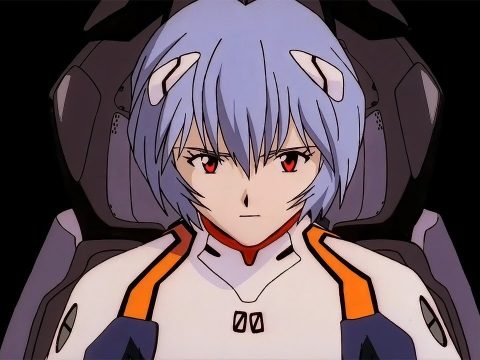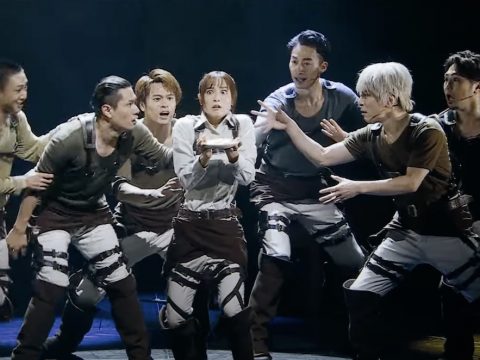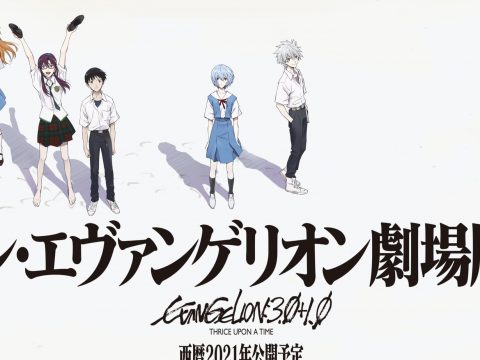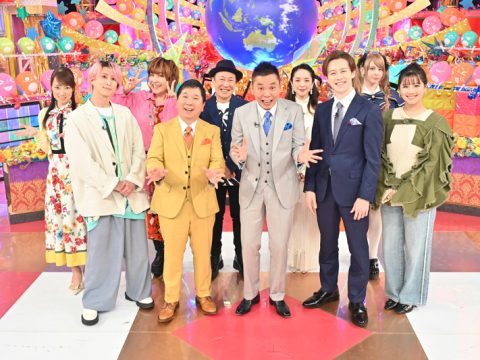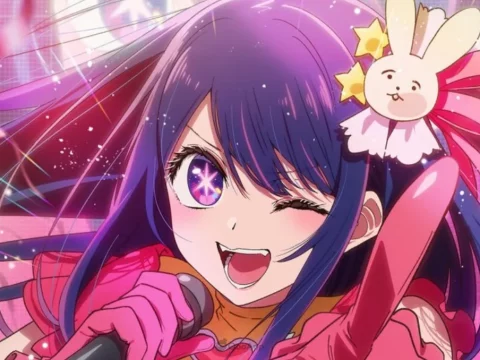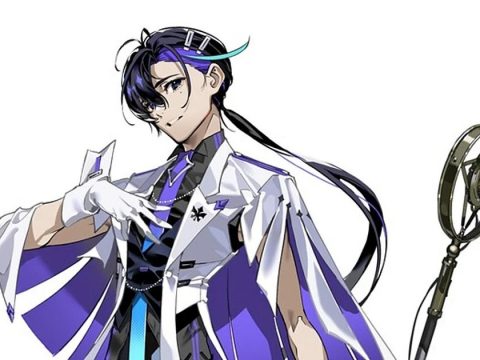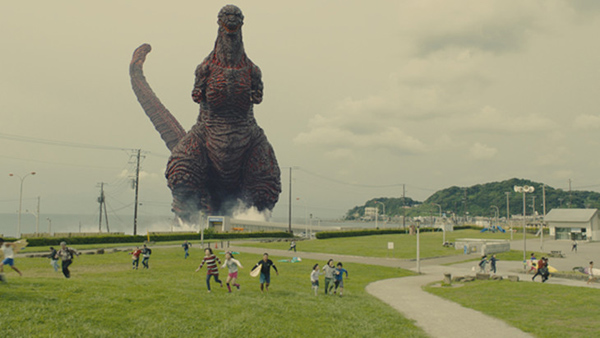
This may be the film Hideaki Anno was born to make.
Make no mistake: though Godzilla Resurgence, the first Japanese Godzilla film in 12 years, was technically directed by both Neon Genesis Evangelion creator Hideaki Anno and Attack on Titan helmer and special effects wiz Shinji Higuchi, this is a Hideaki Anno film through and through. It’s also a reminder, after years in the Evangelion reboot woods, that Anno is one of Japan’s most unique directorial voices in either animation or live-action filmmaking.
Resurgence opens with a bang – literally. Within a minute of the film’s opening, a tunnel that crosses Tokyo Bay suddenly collapses, and the prime minister’s cabinet is assembled to figure out, in Trump-speak, what the hell is going on and how to respond. Only deputy chief cabinet secretary Rando Yaguchi (Hiroki Hasegawa) is bold enough to suggest the cause could be a giant monster, for which he’s harshly reprimanded – until it turns out to be exactly that.
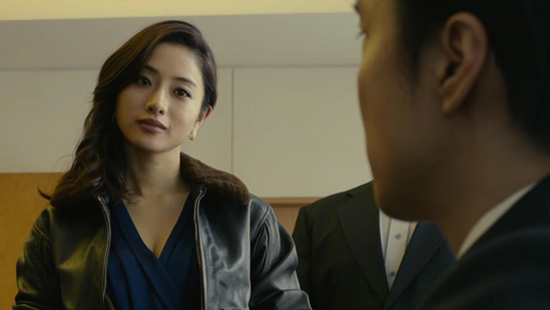
While the monster surfaces and wreaks havoc, the prime minister and his cabinet change into (entirely symbolic) emergency uniforms – instantly recognizable to anyone who was in Japan during the March 2011 earthquake – and hold meeting after meeting, unable to decide what to do. Reluctant to deploy the military on Japanese soil for the first time since World War II, the prime minister demurs, allowing the creature to grow until it comes to resemble the Godzilla we know and fear. Meanwhile, the American government, growing weary of the Japanese government’s indecision, send in special envoy Kayoko Ann Patterson (Satomi Ishihara) to exert some U.S. influence.
I don’t envy whoever has been tasked with subtitling this film: aside from lots of rapid-fire dialogue, the screen is covered – at times, almost entirely – with text, one of director Anno’s favorite filmmaking quirks.
But this information overload has a purpose: to represent the utter confusion, helplessness and frustration following a major disaster. The almost comically glacial pace at which the cabinet deals with the disaster, totally contradictory opinions from so-called experts and the outsized influence of America on a Japanese incident all instantly evoke the post-earthquake days and weeks of 2011. If Gareth Edwards’ Godzilla vaguely touched on Fukushima, Anno’s Godzilla Resurgence tackles it head-on – and chomps on heady issues like the U.S.-Japan security treaty and inevitable great Tokyo earthquake at the same time.
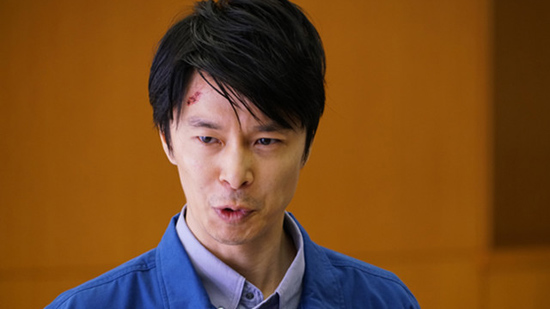
If it sounds like Godzilla himself doesn’t get all that much screen time, that’s because he doesn’t. Anno has learned an important lesson from the best monster flicks: that the monster is usually scarier the less it appears. And this new Godzilla is, at times, genuinely scary, especially halfway through the film when he unleashes a devastating attack that’s a first for the Big G.
The special effects, the responsibility of co-director Higuchi, aren’t as impressive as the 2014 flick – and with less than a tenth the budget, no one expected them to be. The CG generally gets the job done, though there are a couple questionable shots. It’s the Godzilla close-ups that appear to use a physical model, Higuchi’s specialty, that really shine.
There are relatively few Godzilla films in the almost 30 to date that bear much of an authorial mark: the original, a vehicle for creator Ishiro Honda’s feelings about the horror of nuclear weapons; Godzilla vs. Hedorah, an anti-pollution polemic so hated by its producer that director Yoshimitsu Banno was supposedly banned from helming any future Godzilla films; Final Wars, the martial arts-heavy actioner by Versus director Ryuhei Kitamura.
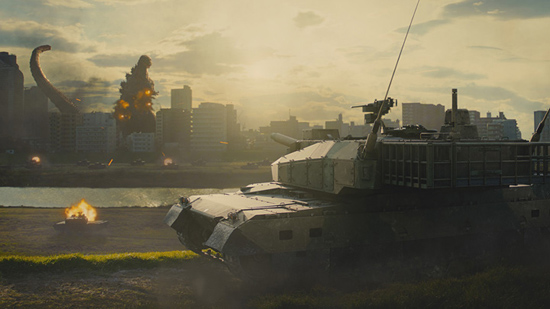
Perhaps more than any of those films, Godzilla Resurgence is clearly the vision of one man: Hideaki Anno. Fans of the director will recognize many pet themes, visual motifs and aural cues (the film’s preparing-for-battle music cue is literally the same one used in Evangelion) from Anno’s filmography. And as heavy as this film is, it’s sprinkled with moments of incredible levity. The director has publicly stated how depressed making the new Evangelion films has made him, and this is the first time in over a decade I was reminded Anno has a sense of humor.
Then again, Anno himself is famously influenced by giant monster movies and TV like Godzilla and Ultraman – ostensibly why he was given the job of resurging Godzilla in the first place, meaning that while he bends the Godzilla formula to his will, he never breaks it.
Coming out of the theater, I overheard a couple saying “that didn’t feel much like a Godzilla movie.” And Resurgence is certainly unconventional. But what does a Godzilla movie feel like, anyway? A somber contemplation of nuclear power? A children’s romp through a monster-filled island? A battle between two famous movie monsters? The best Godzilla films have always reflected the spirit of their age, and it’s the ones that bend over backwards to be a “normal” G flick that are ultimately the most forgettable.
Using Godzilla to share his unique vision and touch on the issues of the day, Hideaki Anno has achieved a successful resurgence for both the Big G and himself.
Matt Schley is Otaku USA’s man in Japan and e-News editor. Seeing Godzilla vs. Monster Zero on late-night cable as a kid is one of the reasons he’s here in the first place.


